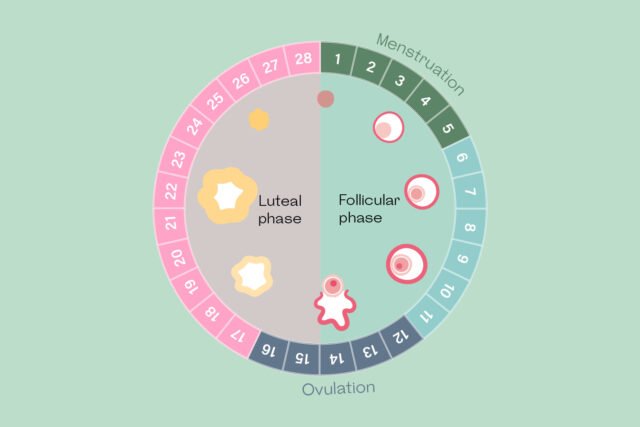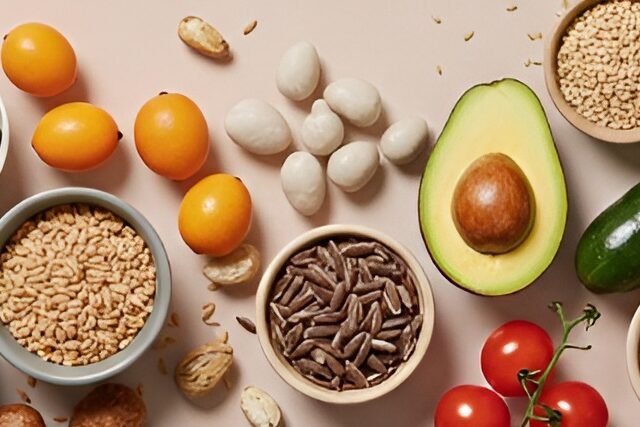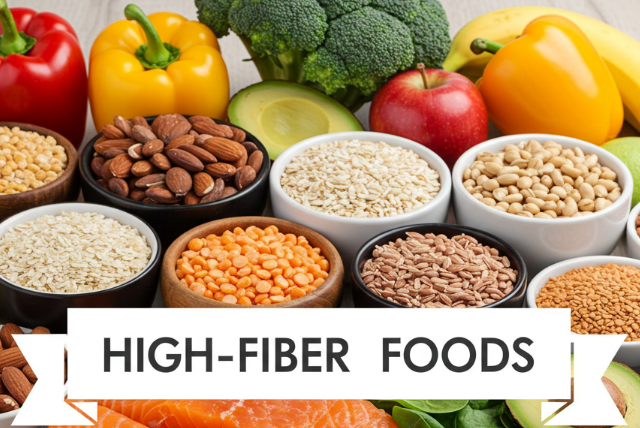
*This post may contain affiliate links. Read more.*
Living a long and healthy life starts with what you put on your plate. Research consistently shows that certain foods provide longevity-boosting benefits, improving heart health, reducing inflammation, and supporting overall well-being. Based on the latest scientific findings, here are six essential foods you should include in your diet for a longer, healthier life.
1. Leafy Green Vegetables
Dark, leafy greens such as spinach, kale, and Swiss chard are packed with vitamins, minerals, and antioxidants. These vegetables are not only nutrient-dense but also provide a powerful array of health benefits. Studies suggest that a higher intake of leafy greens is linked to a reduced risk of chronic diseases. For instance, a study published in Neurology found that “higher consumption of green leafy vegetables was associated with slower cognitive decline in older adults” (PubMed). This means that including greens in your diet may not only benefit your heart and bones but can also support your brain health, making them a key element of a longevity-promoting diet.
These vegetables are versatile and can be added to salads, smoothies, soups, and even sandwiches. Kale and spinach, in particular, are rich in vitamins A, C, and K, along with folate and iron. The high fiber content in these greens also aids digestion and helps maintain a healthy weight, an important factor in longevity.
2. Nuts and Seeds
Nuts like almonds, walnuts, and cashews, along with seeds such as flaxseeds and chia seeds, are rich in healthy fats, fiber, and essential nutrients. Regular consumption of nuts has been linked to a wide range of health benefits. According to the Mayo Clinic, eating nuts regularly may improve artery health, reduce inflammation related to heart disease, and lower levels of “bad” LDL cholesterol (Mayo Clinic).
Nuts and seeds are also excellent sources of plant-based protein, which is important for muscle health and overall body function. They contain powerful antioxidants, including vitamin E, which can help fight oxidative stress and protect against age-related diseases. Including a variety of nuts and seeds in your diet can offer substantial protection against chronic illnesses such as heart disease and diabetes.
Adding them to your diet is simple. You can sprinkle them over salads, mix them into your oatmeal, or snack on them throughout the day. Their natural fats and proteins make them a satisfying and nutritious option, keeping hunger at bay and providing steady energy throughout the day.
3. Legumes and Beans
Lentils, chickpeas, black beans, and other legumes are excellent sources of plant-based protein, fiber, and essential vitamins. Legumes are a staple in the diets of some of the longest-living populations around the world. In fact, research from the Blue Zones, which studies the world’s longest-living populations, highlights that “beans are the cornerstone of the diets of the longest-lived people on Earth (Blue Zones).”
The fiber content in beans and legumes is particularly beneficial for heart health, helping to lower cholesterol levels and regulate blood sugar. Their rich fiber content also supports digestive health and promotes a feeling of fullness, which can aid in weight management.
Legumes are incredibly versatile and can be incorporated into various dishes, including soups, stews, salads, and even veggie burgers. They are also relatively inexpensive, making them an accessible and budget-friendly option for boosting longevity.
4. Whole Grains
Whole grains like quinoa, brown rice, and oats are rich in fiber, vitamins, and minerals. These grains are an essential component of a balanced diet because they provide sustained energy and important nutrients for overall health. A study published in the Journal of the American Medical Association found that “a higher intake of whole grains is associated with reduced mortality from cardiovascular disease” (Harvard School of Public Health).
Whole grains are particularly beneficial for heart health because they are high in soluble fiber, which can help lower cholesterol levels and reduce the risk of heart disease. They also help regulate blood sugar levels, reducing the risk of type 2 diabetes. Whole grains are packed with antioxidants, vitamins B and E, magnesium, and selenium, nutrients that are essential for reducing inflammation and protecting against chronic diseases.
Whether enjoyed as a side dish, breakfast option, or incorporated into baked goods, whole grains are an easy and delicious way to improve your overall health and increase your life expectancy.
5. Fatty Fish
Fatty fish like salmon, mackerel, and sardines are rich in omega-3 fatty acids, which are essential for brain function and heart health. These fish are among the best natural sources of omega-3s, which are known to reduce inflammation, lower blood pressure, and protect against heart disease. According to the American Journal of Clinical Nutrition, “omega-3 intake from fish is linked to a lower risk of heart disease and improved longevity (AJCN).”
In addition to omega-3s, fatty fish is an excellent source of high-quality protein, vitamin D, and selenium. Regular consumption of fatty fish has been shown to improve cognitive function, reduce the risk of stroke, and support healthy aging. The omega-3s in these fish also play a vital role in supporting eye health and reducing the risk of age-related macular degeneration.
Incorporating fatty fish into your diet can be as simple as grilling or baking a salmon fillet, adding sardines to salads, or using mackerel in stews or soups. Aim to include fatty fish in your meals at least twice a week for optimal health benefits.
6. Extra Virgin Olive Oil
A staple of the Mediterranean diet, extra virgin olive oil is loaded with monounsaturated fats and antioxidants. Olive oil is known for its anti-inflammatory properties and its ability to support heart health. Research from the New England Journal of Medicine suggests that “consuming extra virgin olive oil reduces the risk of major cardiovascular events (Healthline).”
In addition to heart health, olive oil has been shown to support brain function, reduce the risk of cancer, and promote healthy skin. Its high levels of polyphenols and antioxidants can help reduce oxidative stress and inflammation in the body, providing a natural defense against the aging process.
Extra virgin olive oil is perfect for drizzling over salads, roasting vegetables, or using in dressings and dips. When choosing olive oil, look for cold-pressed, extra virgin varieties to ensure the highest levels of antioxidants and beneficial compounds.
Final Thoughts
Incorporating these six essential foods into your diet can contribute to a longer and healthier life. By making small, intentional changes to your eating habits, you can enjoy both the immediate and long-term benefits of nutrient-rich foods. Remember, the foundation of a healthy, long life begins with the foods you eat, so focus on choosing wholesome, natural ingredients that support your overall well-being.
By embracing these foods, you can improve your heart health, boost your cognitive function, reduce inflammation, and support your body’s ability to fight off chronic diseases. Whether you’re looking to slow down the aging process, increase your energy, or simply improve your quality of life, these foods are a great starting point for a longer, healthier journey.
#essential nutrients #healthy eating habits #longevity #plant-based diet










